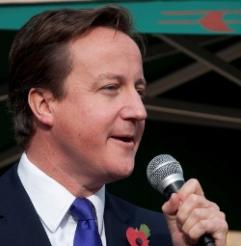David Cameron is sold on the concept of lifetime legacies, but the Chancellor is opposed, Thomas Hughes-Hallett claimed yesterday.
The Marie Curie Cancer Care chief executive, who led the Philanthropy Review which called for lifetime legacies to be introduced into the UK, said that Number 10 liked lifetime legacies.
“The Prime Minister definitely bought into it and he was definitely blocked by the Chancellor,” said Hughes-Hallett.
Updating the audience at the Philanthropy Programme symposium yesterday on the progress of the calls to action from the Philanthropy Review, Hughes-Hallett said that despite “hitting a wall” in discussing lifetime legacies with HMRC, he will not give up on lobbying for the giving mechanism to be introduced in the UK.
Lifetime legacies refers to a tax-effective giving mechanism, used in the US, which enables individuals to make a gift to charity - of shares, cash, artworks, property and the like – but still use it within their own lifetime.
Payroll giving 'still best way of donating'
Hughes-Hallett’s Philanthropy Review had also extolled the virtues of payroll giving, also big in the US, which he said yesterday remains “the best possible way of giving”.
Hughes-Hallett along with the sector had been expecting the Cabinet Office to order a review of payroll giving in the UK last year, as indicated in the Giving White Paper, but no review has yet been ordered.
One problem with the payroll giving system, he said, is that the agencies involved are expensive. He added the likes of JustGiving and Virgin Money Giving should take on payroll giving, simplify it, move it online and enable employees to give to whichever charity they please.
On the subject of introducing charity accounts into high street banks, Hughes-Hallett said: “Progress is depressing.”
“It’s not [banks'] top priority because they can’t make money out of it,” he said. If and when they do become more widespread, as called for in the Philanthropy Review, it’s unlikely that these accounts will look like a CAF account but rather just be a separate bank account into which users can siphon money for giving away.
Cameron will return to Big Society
While convinced that the Conservatives also did not understand what they meant by ‘Big Society’ when going into the 2010 election, Hughes-Hallett said that the concept has now become clearer. It will be one of the key things upon which the premiership of David Cameron will be judged, he said.
While health reforms will stick to Health Secretary Andrew Lansley, Chancellor George Osborne will be held to account for the economy, and the Rupert Murdoch and News International issue will stick to Culture Secretary Jeremy Hunt, the achievement or progress of the Big Society will be laid at the feet of David Cameron.
“David Cameron will have to come back to the Big Society [at the next election],” said Hughes-Hallett.
This, he said, will be a good thing for civil society.








